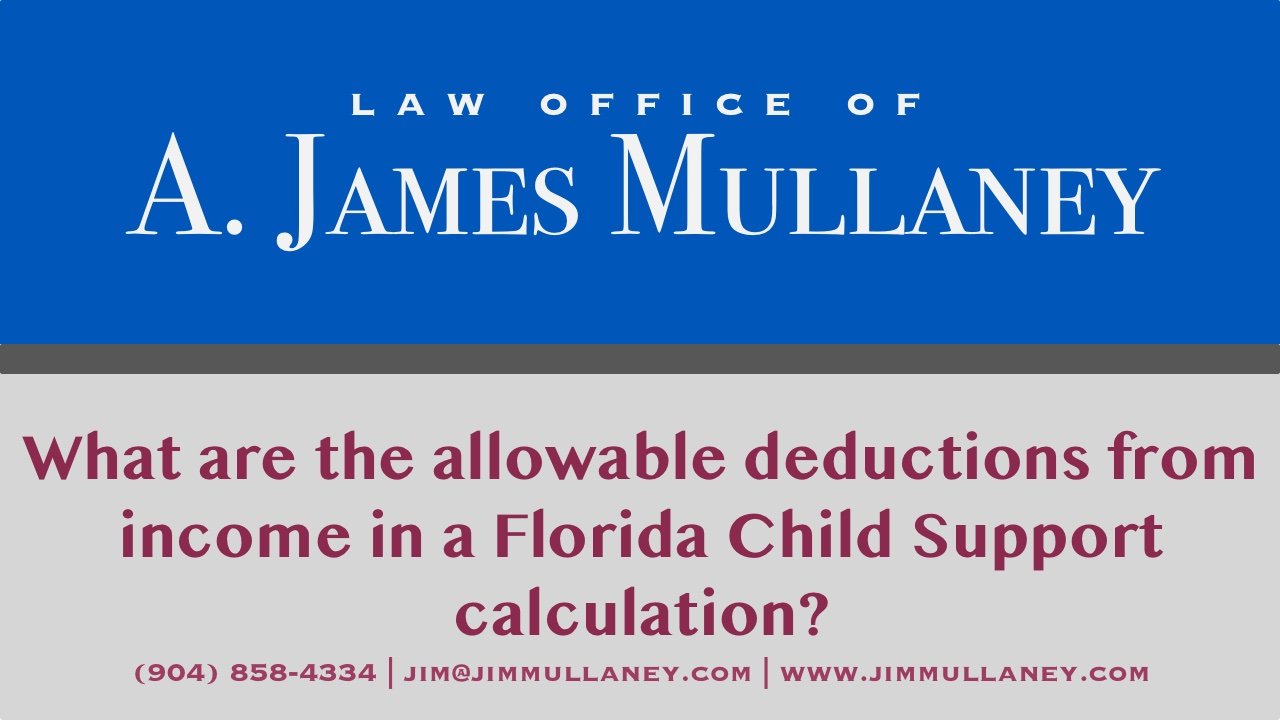What are the allowable deductions from income in a Florida child support calculation?
Child support is based on your net income. The difference between your net and gross incomes are the allowable deductions. This is not necessarily your take home pay.
The main allowable deduction from your gross income is taxes. If you work in Florida, that means your Federal taxes. However, if you live or work in another state you are allowed to deduct your state and local taxes.
Judges use a program that estimates your taxes in order to eliminate the possibility that your withholding is too high or too low. For example, let’s assume that you make $50,000 per year and have $12,000 in taxes withheld from your pay. In that situation, your net income would be $38,000. However, if you received a $4,000 tax refund, then your actual net income would be $42,000 rather than $38,000. So, a judge would use $42,000 as your net income for the child support calculation.
Another potential deduction is for child support that you pay as the result of another case. The key to being eligible for this deduction is that what you pay for the other child is actually court ordered. Voluntary payments to the other child’s parent do not count. Similarly, you can’t deduct payments that you are not making even though you have been ordered to do so.
Another court ordered payment that you are allowed to deduct is alimony – whether it is from your current case or an older case – as long as you actually make the payment.
You are also allowed to deduct what you pay for your own health insurance. Very often only one amount is deducted from your paycheck for health insurance that covers you, your children and potentially your spouse. In that situation, I advise clients to ask their HR department for a breakdown of the cost. What you pay for your own health insurance is deductible, while what you pay for the children is treated differently in the child support calculator.
Lastly, and far less common, are the deductions allowed for mandatory union dues and mandatory retirement plan contributions. The important word here is “mandatory.” In my experience, many union dues and most retirement plan contributions are not mandatory.



